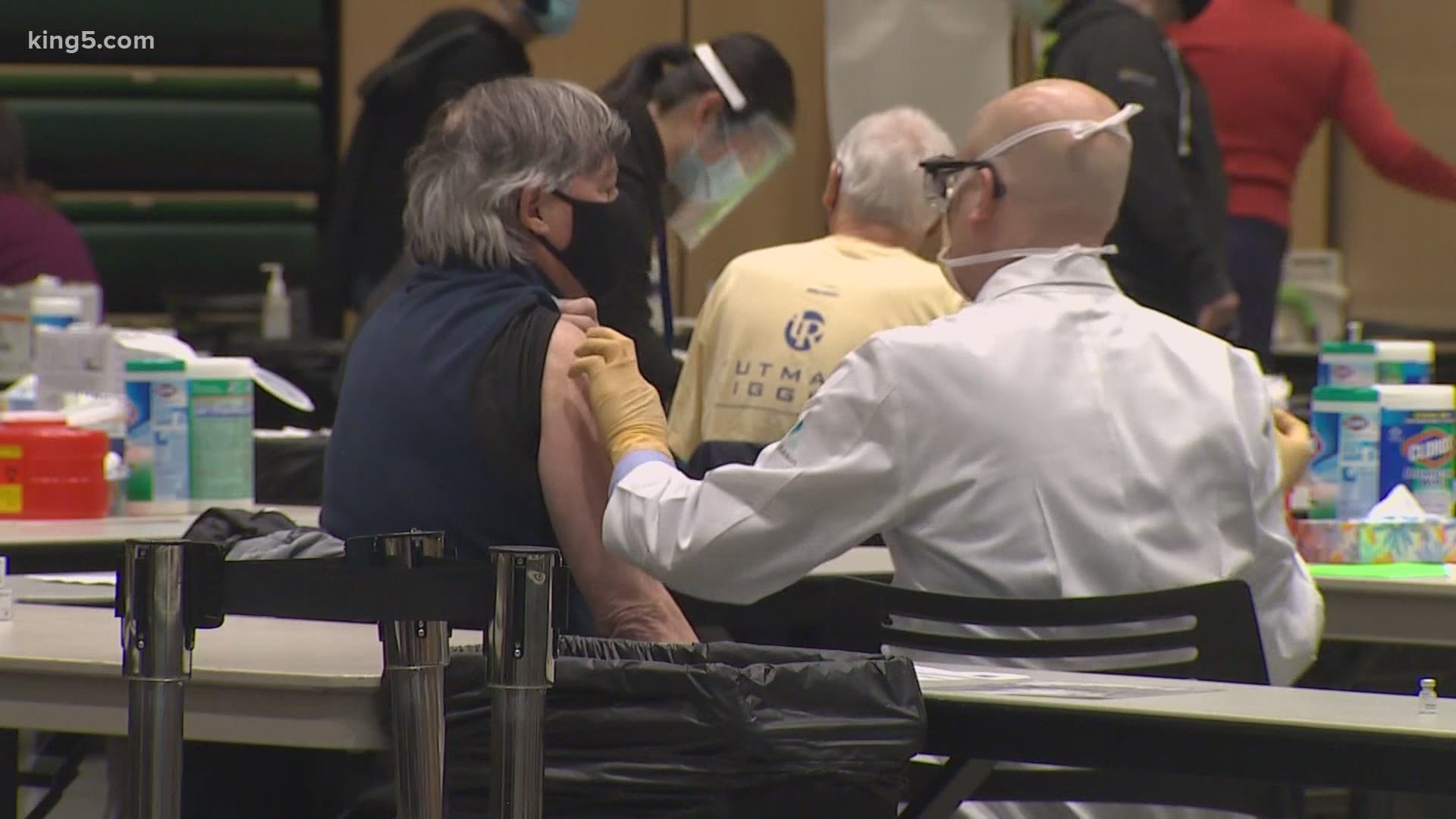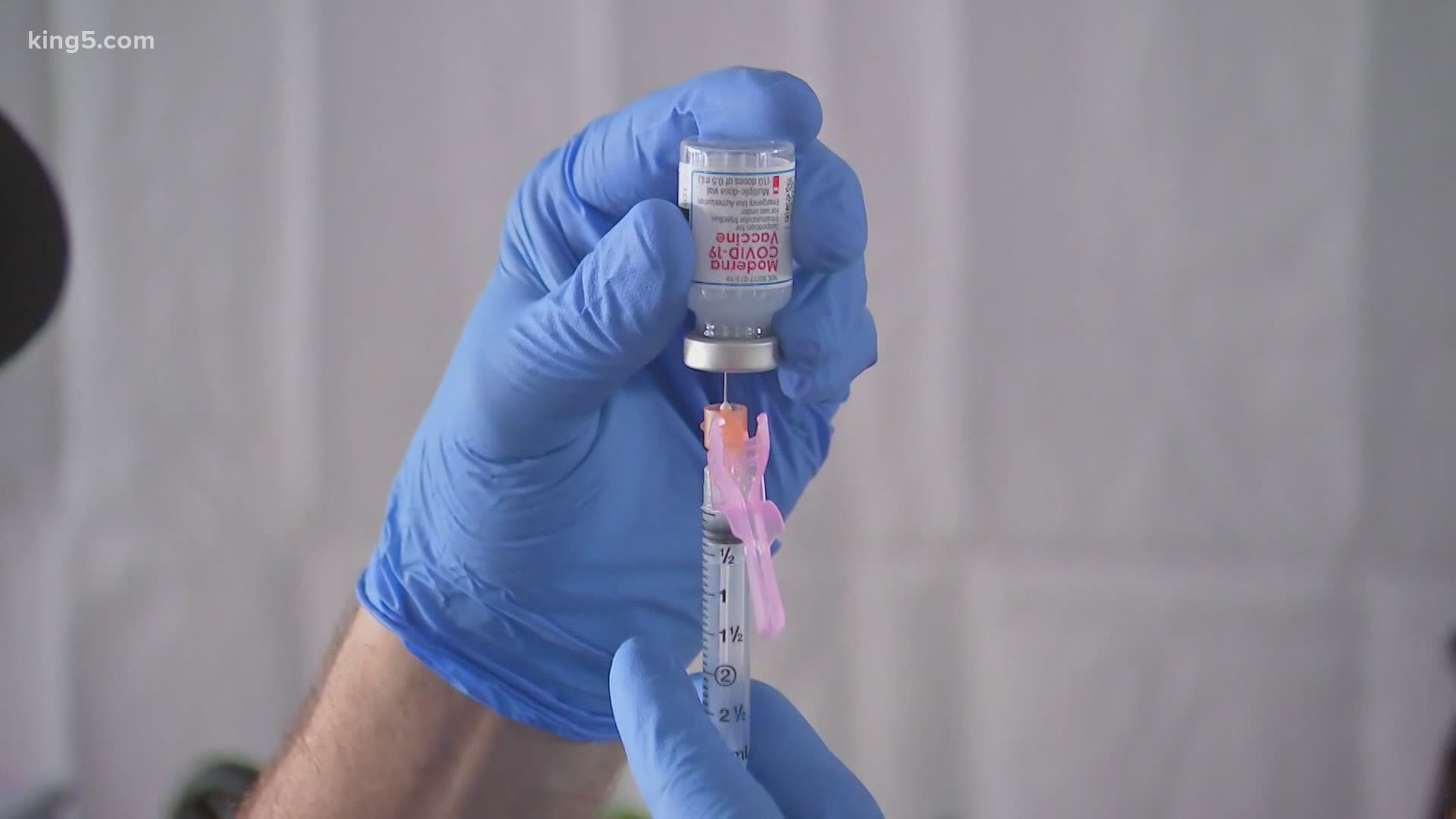EDMONDS, Wash. — The Washington State Hospital Association (WSHA) is warning that a new variant of the coronavirus now identified in western Washington could potentially overwhelm local hospitals.
Washington hospitals were able to avoid being overloaded similar to how California was in the wake of a post-Christmas surge, but the threat of a new surge from the more contagious U.K. variant of COVID-19 comes as the vaccine supply in the state remains shaky.
Leaders from the association Monday outlined how its members have dramatically expanded their ability to vaccinate for the virus, but now it's a matter of having enough doses.
"Right now we’re ramping up to do about 1,000 doses a day," said Tom DeBord, operations director for Overlake Medical Center. Overlake is working with fellow eastside hospital Evergreen, which Debord said is also aiming to do 1,000 doses a day.
The goal is to use a new partnership with Microsoft in Redmond for a larger facility to hit 5,000 doses a day -- "If the allocations are available."
As of midday Monday, none of the hospitals knew what amounts of the vaccine they will receive this week.
Swedish Hospital announced it's having to put its mass vaccination center at Seattle University on pause this week because of the shortage. Some of its other hospitals, including Ballard and Edmonds are only providing second doses, and no longer first doses.
Another concern the association expressed is people double booking appointments as some vaccination sites have run out of the vaccine. That concern goes to not only the people who need the shots and are unable to get them, but also to the potential for waste if the doses once thawed out can't find enough arms.
Despite the lack of supply happening currently, Hospital Association leader Cassie Sauer seemed confident the doses will come. When that happens, the association is considering some creative solutions to getting enough trained professionals to help administer shots.
"For example, veterinarians and veterinary technicians, they give injections to creatures that are a lot more squirmy than humans, and they know how to do it," said Sauer.
Acupuncturists, physical therapists and others could also be asked to help out, whenever the supply catches up.
But until more doses are injected, Sauer said people need to be even more vigilant than they are now. She specifically cited more and better masking, saying the science is proving that masks can not only protect others, but the wearers.
She said bandanas and other single layer face coverings like gaiters won’t cut it against the virus, and urged people to have at least two layers, and even better surgical and other face masks.


